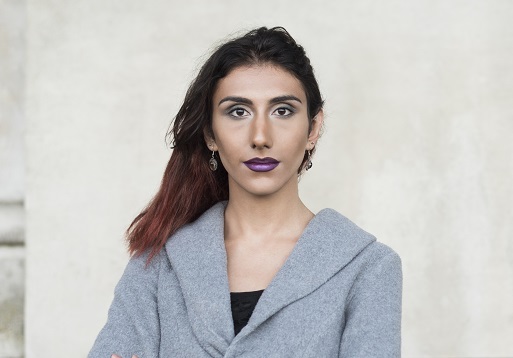Marginalized on Valentine’s Day
Marginalized on Valentine’s Day
By Ramona Peel, Lead Trainer
This Thursday is Valentine’s Day, and many of us who are in relationships are scrambling to buy gifts and make reservations at our favorite restaurants. It’s a holiday that traditionally has centered and celebrated monogamous straight cisgender couples. However, as gay, lesbian and bisexual folks have become more visible, and their relationships have gained more public acceptance and legal status, they’ve become more able to openly celebrate their love on Valentine’s Day as well. While that is certainly cause for celebration on its own, there are still pockets of our community that have difficulty finding acceptance for their relationships, for whom they love, and for how that love is expressed.
One segment of the LGBTQ+ community that faces prejudice from WITHIN the community are those of us who are transgender and/or non-binary (TGNB). TGNB folks face staggering amounts of discrimination in their day-to-day lives, and that extends into dating and romantic relationships. In a 2018 study, only 12% of respondents said that they would date a trans person. This stigma isn’t confined to straight cis folks, either. According to a 2016 survey conducted by Match.com, over half of LGB-identified respondents said that they wouldn’t date a trans person. While everyone obviously has their own individual formula of attraction (and shouldn’t feel obligated to date individuals they aren’t “into”), the fact that even most LGB folks refuse to even CONSIDER dating a trans person underlines how much work remains in dismantling transphobia in our society.
Then there are the people within our community that have relationships that don’t conform to social expectations of life-long monogamy. “Ethical non-monogamy” is an umbrella term that describes all the variations of non-monogamous relationships that include the conscious agreement and consent of everyone involved. This encompasses couples who have agreed to “open” relationships, relationships that include three or more people, and a great number of further variations that all have in common one central trait: The knowledge and consent of each person in the “polycule.” These types of relationships aren’t the right fit for everyone, but for those who find that being “poly” works for them, they often find those relationships to be honest, authentic, and liberating.
Finally, there are people in our community who want to be in emotionally satisfying relationships, but who are not interested in sex. Asexuality is a sexual orientation, and while people who identify as ace may (or may not) have sex for a variety of personally unique reasons, they do not experience sexual attraction. This doesn’t mean that they don’t crave connection to others, or that they don’t feel attraction in other ways. Asexual folks are often not taken seriously, or people assume that ace people are suffering from a medical condition and/or they haven’t “met the right person.” In a society that is often aggressively hypersexual, asexual people are often (wrongly) made to feel like they are defective or broken when they are nothing of the sort.
There are even more variations of sexuality and attraction that are overlooked and misunderstood, but in general it’s important to remember that Valentine’s Day isn’t just for cisgender sexually active monogamous couples.

